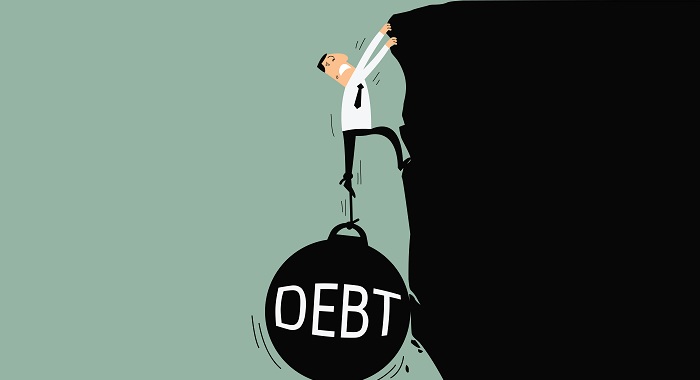Top 10 U.S. States With Highest Credit Card Debt
Did you take out student loans? Do you own a home? Do you have unpaid bills that have gone to collections? Do you have a balance on your credit card?
If you’ve answered “yes” to any of these four questions, chances are you’re in debt of some kind. Debt isn’t necessarily a bad thing. For instance, mortgages and students loans are essential for the majority of Americans in order to get the education required to make other dreams (like owning a home) a necessity. However, maxing out credit cards, bills going to collections, and bankruptcies and foreclosures aren’t good things to have on your record.
When it comes to debt, however, you’re hardly alone – and debt varies on a state-by-state basis. If you live in Minnesota or either of the Dakotas, for instance, you live in a state where the fewest percentage of Americans are in debt. Elsewhere around the nation, it’s a different story. That said, here’s a closer look at the top 10 states with the highest percentage of Americans in debt.
Top 10 States According to Residents in Debt
The following data is based on a December 2017 report from Forbes, according to data tracked in 2016:
- Louisiana: Louisiana leads the nation in this category, as nearly half of its residents (46 percent) are in debt.
- Texas: Just slightly behind Louisiana, about 44 percent of all residents of the Lonestar State are in debt.
- South Carolina: 43 percent of all South Carolinians are in debt.
- West Virginia: 42 percent of West Virginia residents are in debt.
- Nevada: Nevada rounds out the top five, with 41 percent of its residents in debt.
- Alabama, Georgia, Kentucky, Mississippi, New Mexico: Though this is a top 10 list, the five states of Alabama, Georgia, Kentucky, Mississippi and New Mexico all tie for sixth place, with about 40 percent of residents, respectively, in debt.
Most Indebted States (By Value)
While the following list considers the percentage of residents in debt, we figured it would be noteworthy to include a separate list of the states where residents are the most indebted. Perhaps not surprisingly, the wealthiest states in the nation tend to lead this list because they’re buying more expensive properties, cars, etc. Unlike the list above, this one isn’t necessarily a bad list – just so long as the residents keep up with their payments in paying down debt owed. Here’s a look:
- California: With all that Hollywood glitz and glam, and high coastal property values, the average California resident is in debt at just over $336,000.
- Hawaii: Everything is more expensive in Hawaii, which is why the average resident is in the hole about $321,000.
- Maryland: The average Maryland resident is about $263,500 in debt.
- New Jersey: Though a bit surprising, the average New Jersey resident is some $257,500 in debt.
- Washington: Rounding out the top five is Washington, where the average residents is $243,800









